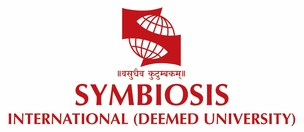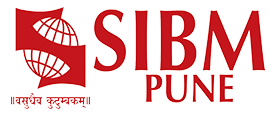



ICABM 2018, SIU Pune conference provides a leading forum for the presentation of new advances and research results in the fields of Business Management. The conference will bring together leading researchers and practitioners around the world hailing from different sectors such as Manufacturing, Information Technology, Retail, Banking & Finance, Consulting, Automobile, and FMCG&FMCD sectors. Submissions can be made under the following tracks consisting of sub themes given below.
| 1. Consumer Behaviour |
| 2. Product and Brand Management |
| 3. Pricing Issues |
| 4. Marketing Channels |
| 5. Retailing Issues |
| 6. Business Communications and Advertising |
| 7. Customer Relationship Management |
| 8. Marketing Strategy |
| 9. International Marketing |
| 10. Technology Marketing |
| 11. Selling and Sales Management |
| 12. Research Methods in Marketing |
| 13. Business to Business (B2B) Marketing |
| 14. Ethical Issues in Marketing |
| 15. Environmental Marketing |
| 16. Non-Profit Marketing |
| 17. Business to Consumer (B2C) Marketing |
| 18. Direct Marketing |
| 19. Innovations in Marketing |
| 20. Emerging Issues in Marketing |
| 21. Sports Marketing |
| 22. Fashion Marketing |
| 23. Arts Marketing |
| 24. Tourism Marketing |
| 25. Hospitality Marketing |
| 26. Branding and Destination Imaging |
| 27. Events Marketing |
| 28. E-Marketing |
| 29. Tools and Applications in Mobile Marketing |
| 30. Marketing and Social Media |
| 31. Marketing Analytics |
| 32. New ways of building Brands |
| 33. Digital marketing |
| 34. Customer retention |
| 35. Native advertising |
| 36. Effective Marketing |
| 37. Strategy in Digital era |
| 38. Bottom of the Pyramid |
| 39. Blue Ocean Strategy |
| 40. Strategic Management in e-commerce enterprise |
| 41. Approaches and Models of Strategic Management |
| 42. Challenges to Strategic Management |
| 43. The Strategic Audit: Aid to Strategic Decision Making |
| 44. Ethical Issues and Social Responsibilities |
| 45. Different Approaches and Models of Industry Analysis |
| 46. Approaches of International Risk Assessment |
| 47. Strategic Issues in Managing Stakeholder Relationships |
| 48. Global Branding Issues in Strategic Management |
| 49. Approaches to Evaluating Competitive Intelligence |
| 50. Competitive Analysis Techniques-how to use |
| 51. Research on Core and Distinctive Competencies |
| 52. Strategic Information Technology Issues |
| 53. Corporate Strategy formulation approaches |
| 54. SWOT Analysis and Carrying Out Business Strategy |
| 55. Types of Business Competitive Strategy |
| 56. Types of Cooperative Strategy |
| 57. Portfolio Analysis: Approaches and Techniques |
| 58. Approaches of Corporate Parenting Strategy |
| 59. Situational Analysis for Strategic Planning |
| 60. Constructing Corporate Scenarios for generating Strategic Alternatives |
| 61. Problems of Global Strategy |
| 62. Advanced Types of Organizational Structures for Effective Strategy Implementation |
| 63. Problems in implementing Growth and Retrenchment Strategies |
| 64. Relationship of Management by Objectives and Strategic Management |
| 65. Relationship of Total Quality Management and Strategic Issues |
| 66. International Strategic Performance Measurement |
| 67. Strategic Issues in Managing Technology and Innovation |
| 68. Categories of Innovation for Proper Strategy Formulation |
| 69. Role of the Entrepreneur as Strategist |
| 70. Is growing protection queering the pitch in planning global business strategy |
| 71. The difficult Art and Science of making strategy work |
| 1. Strategic HRM |
| 2. Recruitment and Selection |
| 3. Current/ new trends in Training and Development |
| 4. Global HRM |
| 5. Latest developments in Performance Management |
| 6. Recent Trends in retaining people |
| 7. Managing Talent |
| 8. Creating Human Capital |
| 9. Contemporary issues in Industrial Relations |
| 10. HR Analytics and technology in HR |
| 11. Organizational Development and Change Management |
| 12. Organizational culture and climate |
| 13. HR shared services and outsourcing |
| 14. Positive organizational psychology |
| 15. Organizational communication |
| 16. Employee engagement strategies |
| 17. Emotional Intelligence |
| 18. Contemporary Leadership and Management |
| 19. Developing strategic leadership capabilities |
| 20. Entrepreneurial leadership |
| 21. Political/Public leadership |
| 22. Gender and leadership |
| 23. Leader’s role in innovation |
| 24. Leadership challenges and barriers |
| 25. Global leadership |
| 26. Women and leadership |
| 27. Sustainable leadership |
| 28. Management in leadership |
| 29. Leadership: preparing for the Golden hour of crisis situations |
| 30. Fitting your leadership style to the business plan |
| 31. Leadership: product of your genes or the environment |
| 32. Leadership through ICT |
| 33. Leadership through achieving scale and speed of execution |
| 34. Leadership and Leading Types for Effective Strategy Formulation and Implementation |
| 35. Culture and Business Management |
| 36. Learning organizations |
| 1. Accounting Challenges |
| 2. Strategic Accounting |
| 3. Management Control Systems |
| 4. Creative Accounting and Earnings Management |
| 5. Forensic Accounting and Fraud |
| 6. Information security audits |
| 7. Electronic crime |
| 8. Best Practices in Corporate Governance |
| 9. Asset-liability management |
| 10. Derivatives and structured financial products |
| 11. Efficiency and performance of financial institutions and bank branches |
| 12. Financing decisions of banks |
| 13. Investment banking |
| 14. Management of financial institutions |
| 15. Technological progress and banking |
| 16. Accounting standards and regulations |
| 17. Environmental accounting |
| 18. Financial accounting |
| 19. Management accounting |
| 20. Risk management and internal control |
| 21. Social accounting |
| 22. Valuation of Tangible & Intangible assets |
| 23. Bankruptcy prediction and determinants |
| 24. Corporate finance |
| 25. Credit risk modelling and management |
| 26. Financial engineering |
| 27. Foreign exchange markets |
| 28. Mergers and acquisitions |
| 29. Mutual Funds management |
| 30. Portfolio management |
| 31. Regulations of financial markets |
| 32. Accounting and Finance |
| 33. Accounting, Auditing and Performance Evaluation |
| 34. Auditing Technology |
| 35. Behavioral Accounting and Finance |
| 36. Financial Markets and Derivatives |
| 37. Financial Services Management |
| 38. Managerial and Financial Accounting |
| 39. Monetary Economics and Finance |
| 40. Financial Product Development |
| 41. Financial data governance |
| 42. Cloud solution to Banks |
| 43. IT and CRM in Banking |
| 44. Cyber Security in Banks |
| 45. Digital technology in Banking |
| 46. Financial inclusion |
| 47. Internet Banking and Emerging Markets |
| 48. FDI in Banks |
| 49. Analytics in Banking & Finance |
| 1. Behavioural Operations Management |
| 2. City/Urban Logistics |
| 3. Closed Loop Supply Chains |
| 4. Empirical Research in Operation Management |
| 5. Operational Excellence |
| 6. Healthcare Operations Management |
| 7. Humanitarian Logistics and Disaster Relief |
| 8. Inventory Management |
| 9. Learning and Knowledge Management in Operation Management |
| 10. Marketing and Operation Management Interface |
| 11. Operation Management and Operation Research |
| 12. Quality Control and Six Sigma |
| 13. Retail Operations Management |
| 14. Revenue Management and Pricing |
| 15. Scheduling and Logistics |
| 16. Service Operations |
| 17. Supply Chain Analytics |
| 18. Sustainable Operations Management |
| 19. Digital Manufacturing |
| 20. Internet of Things & Industry 4.0 |
| 21. Simulations |
| 22. Lean management |
| 23. Business Process Re-engineering |
| 24. CAD/CAM/CIM |
| 25. Use of Analytics in making management better |
| 26. Applying new ICT tools for business |
| 27. E-Business |
| 28. Information Systems |
| 29. Gamification in Business |
| 30. Chasing best practices, not fads |
| 31. Artificial Intelligence |
| 32. Platform Architecture |
| 33. Cloud computing |
| 34. Data Security |
| 1. Regional and cluster innovation |
| 2. Innovation success |
| 3. Incremental innovations |
| 4. Capability to innovate |
| 5. Effects of training on innovation |
| 6. Managing disruptive innovation |
| 7. Innovation and product design |
| 8. Academic entrepreneurship |
| 9. Evolutionary learning |
| 10. Entrepreneurial Learning and Teaching in Higher Education |
| 11. Entrepreneurship training and development |
| 12. University-enterprise cooperation |
| 13. Research-based spin-offs |
| 14. Innovation in education |
| 15. New venture creation |
| 16. Intrapreneurship |
| 17. Innovation in Management processes |
| 18. Start-up management |
| 19. Entrepreneurship development programmes |
| 20. Endogenous growth models |
| 21. Risk analysis |
| 22. Technological innovation process |
| 23. Incremental innovations |
| 24. Social innovation and social entrepreneurship |
| 25. Creativity, innovation and entrepreneurship |
| 26. Green Innovation and Entrepreneurship |
| 27. Venture capital |
| 28. Knowledge-based Innovation |
| 29. Technology entrepreneurship |
| 30. Social construction of technology |
| 31. Surrogate entrepreneurship |
| 32. Strategy for Building Entrepreneurial Communities |
| 33. Radical innovations |
| 34. Cyber entrepreneurship |
| 35. Complex adaptive systems (CAS) |
| 36. Organizing to Innovate with Competitors |
| 37. Coopting Strategy at the Crossroads: The Challenge of Entrepreneurship and Innovation |
| 38. Innovation by motivation or instinct- choosing the productive effort |
| 39. Can innovation be your KRA |
| 40. The world of business startups leans on Innovation |
| 41. Customer centric strategy through innovation |